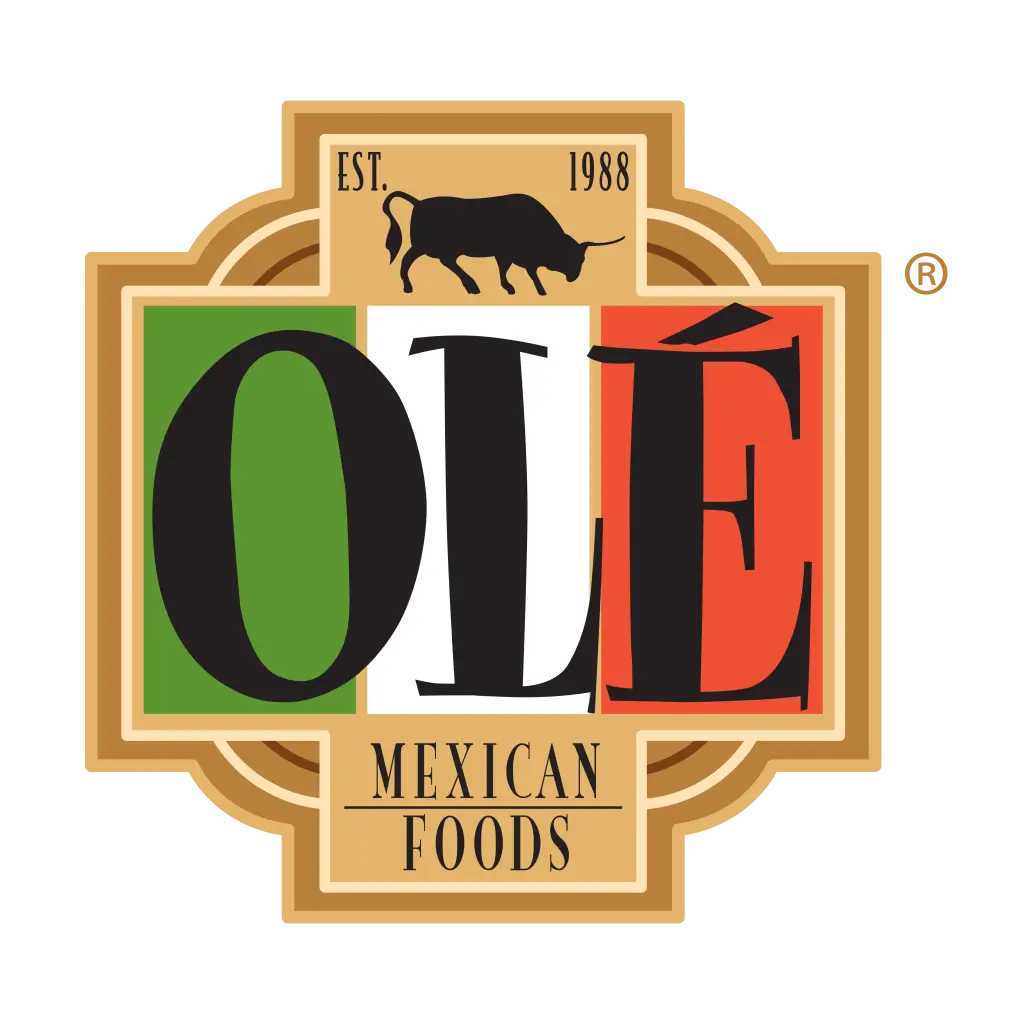Ole FAQs
Frequently Asked Questions
Gluten/Allergens
Yes. Our corn products are made with 100% corn masa and/or corn flour; no wheat flour or wheat ingredients are added. These products include corn tortillas, corn chips, and tostadas. Our chorizo is also gluten-free.
As part of the HACCP program, Olé Mexican facilities have established a strict Allergen Control Program. Our corn production lines are 100% dedicated to making corn products, and our wheat production lines are 100% dedicated to making wheat products.
Nutritional
Cellulose is obtained directly from natural vegetable fibers. It serves as an indigestible dietary fiber. Unfortunately, Olé cannot disclose its formula.
No, we currently do not have nutritional information available for our recipes.No.
For nutrition facts and ingredients, please visit our website, OleMex.com.
Yes. Look for the Star K kosher symbol on our packaging.
Yes. Preservatives help protect the flavor and the freshness of our products.
They are vegetable-based.
Our cheese and sausage products are animal-derived.
Only our bakery/Mexican bread products contain eggs.
Our cheese dip contains soy ingredients.
Our cheese products and our bakery/Mexican bread products contain milk ingredients.
All of our wheat tortillas contain wheat. All of our cheese products contain milk. All of our Mexican breads contain wheat, soy, nuts, tree nuts, and milk. Our sausage products do not contain any of the major eight allergen foods. None of Olé Mexican Foods products contain any of the following ingredients: peanuts, crustaceans, or fish. For more information on ingredients, please visit our website, OleMex.com.
Storage
Yes. You can refrigerate it again and reheat it later. If you dipped food directly into the cup instead of pouring out the product, it may go bad sooner. We suggest pouring or scooping out what will be used, heating only what you need, and storing the rest.
Our tortillas are shelf-stable, so you may store them on your counter or in your pantry. They can also be refrigerated or frozen. Thaw frozen tortillas in the refrigerator for 24-36 hours before using them. Do not thaw in the microwave.
We do not recommend eating them past their expiration date. After that date, tortillas can become dry and hard, and may get moldy.
Handling conditions are important. If you are not going to consume the whole package after opening it, wash your hands, remove the tortillas you will need, and tightly close the package. The product should be good until the expiration date printed on the package.
Yes. If the product was in the refrigerated section at the store, they have a refrigerated code date printed on the package. If the product is not kept in the refrigerator after purchase, it may grow mold before its expiration date, depending on humidity and other factors.
Not necessarily. The tortillas will last at ambient temperature until the date printed on the package. If they are placed in the refrigerator until they are ready to be used, they will last longer. The shelf life in the refrigerator varies depending on the conditions the product was stored in prior to placing them in the refrigerator.
The tortillas can be left at room temperature and should be good until the date printed on the package.
The shelf life of our products varies depending on their formulation and storage conditions. The following is the typical shelf life of Olé products stored at room temperature (unopened package): Flour tortillas: 69 days; wraps: 69 days; corn tortillas: 69 days; tortilla chips: 69 days; tostadas: 90 days; cheddar cheese dip: 9 months; chunky salsas: 12 months.
Products
The difference is only in the diameter. A burrito is approximately 10 inches, a soft taco is about 8 inches, and a fajita is about 6 inches.
Wraps are flavored and seasoned tortillas.
Packaging
It is the expiration date of the product. The rest is to identify the plant that made the product, then the production line, production date, and time. All this is for traceability purposes.
Process
Modern commercial processes for production of corn masa evolved from the traditional method of nixtamalization, or alkaline (calcium hydroxide—100% food grade) cooking, used by the Aztecs. The basic process begins by cooking whole corn in water containing lime (calcium hydroxide) and steeping the cooked corn.
Recycling
A: All tortilla (both corn and flour), tostada, fried chip, chicarrones, and concha packaging are Recycling #4
B: Chorizo items are Recycling #7
